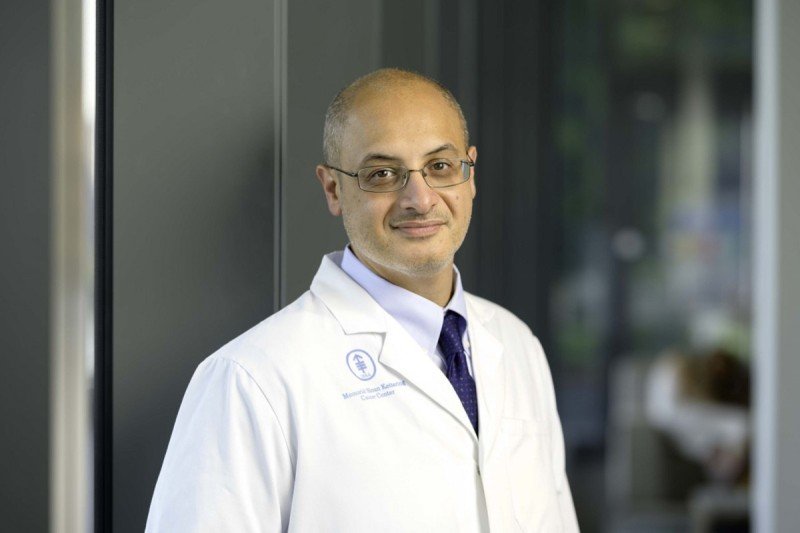
Memorial Sloan Kettering Cancer Center has received a major grant from the US National Institutes of Health (NIH) to conduct research related to leukemia. It is the sixth grant of this type to be received by MSK investigators. It is referred to as a SPORE grant, for Specialized Programs of Research Excellence. MSK has previously received them for prostate cancer, breast cancer, bladder cancer, sarcoma, and lymphoma.
MSK’s leukemia SPORE grant will largely focus on acute myeloid leukemia (AML) the most common type of leukemia in adults. AML affects about 20,000 people in the United States every year. Treatments for AML have improved over the past decade, with many new drugs developed, but the five-year survival rate is still only about 25 to 29%.
“Outcomes for AML are poor, so there is a tremendous need for developing better treatments,” says physician-scientist Omar Abdel-Wahab, who is co-principal investigator for the new initiative, along with Leukemia Service Chief Martin Tallman.
“This is an area where MSK already has many research projects under way,” adds Dr. Abdel-Wahab, who is Director of the MSK Center for Hematologic Malignancies. “This grant from the NIH will allow us to continue and accelerate our work in several promising areas.”
The funds, however, can be put toward research in any kind of leukemia, leaving the door open for supporting studies on additional disease types in the future.
A Focus on Four Major Areas
The current plan is for the bulk of the grant to go toward funding four projects:
- Studying the ways in which AML develops resistance to targeted drugs called IDH1 and IDH2 inhibitors. This effort will also look at the potential for combining drugs called FLT3 inhibitors with these IDH drugs.
- Developing drugs that inhibit a protein called OGDH, which is found in some particularly aggressive forms of AML.
- Finding ways to make AML more responsive to immune checkpoint inhibitor drugs by targeting the way in which these cancer cells assemble proteins (called splicing).
- Developing CAR T therapies for the treatment of AML.
“Each of these projects will address current unmet needs in the treatment of patients with AML,” Dr. Tallman says. “They will evaluate new therapeutic targets, novel combination strategies, and advances in cellular immunotherapy. They are all clinically innovative and employ novel technology.”
Supporting the Next Generation and Cross-Collaboration
According to Dr. Abdel-Wahab, part of the money will also go toward pilot projects in the Developmental Research Program. Efforts will also be made to mentor young investigators through the Career Enhancement Program. This will help ensure that a future generation of researchers is prepared to further advance research and treatment for all types of leukemia.
MSK’s Leukemia SPORE is the fourth SPORE grant in the country to focus on leukemia. The others are at MD Anderson Cancer Center, Dana-Farber Cancer Institute, and Washington University in St. Louis. “We are already setting up collaborative projects with these other groups,” Dr. Abdel-Wahab says. “There are many opportunities for cross-collaboration.”
- MSK has received a Specialized Programs of Research Excellence (SPORE) grant from the National Institutes of Health to study leukemia.
- The grant is a recognition of MSK’s expertise in this area.
- Efforts will focus on developing new treatments for patients with acute myeloid leukemia, a disease that currently lacks enough effective therapies.






